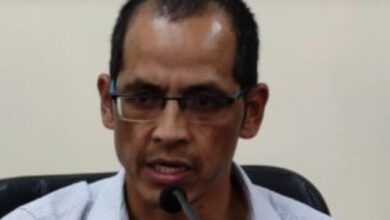‘Compassionate farmer’ from Assam sows seeds of change
Samir Bordoloi's organic farming & seedbombing initiatives are helping NE farmers find sustainability

In his book Sense and Solidarity, development economist Jean Drèze wrote in the context of food subsidy, “There is an enormous potential for productivity improvement in large parts of the eastern region, which has been grossly neglected. Instead, massive resources have been spent on promoting unsustainable farming patterns in Punjab, Haryana, and other privileged areas.”
The unsustainability of agricultural practices, coupled with the corporate model of farming that is being deliberately propagated in today’s time, has proved grievously harmful to the Indian primary sector. This prompted Samir Bordoloi to take up the gauntlet to bring about a change in farming practices by promoting organic methods and agroforestry.
Bordoloi, who is from Assam’s Jorhat district and holds a degree from Assam Agriculture University, started his career in the state government. After a short stint in the Arunachal Pradesh Agriculture Department, he shifted to the corporate sector in 2003. However, Bordoloi found the “food conspiracy” that contaminated the seed-to-feed chain repulsive and gave up his job after two years to find a new way of sustainable farming.

“The food conspiracy works in this way — first, the local food wisdom is neutralised to accommodate certain consumer products. Simultaneously, the entire system is designed in such a way that a majority of the youth move away from agriculture to become migrant workers. The remaining about 40% of the farmers are then made beneficiaries of subsidies and mobilised towards a certain form of farming to keep the food business running. They become dependent on the system. At the same time, fancy food items, such as dragon fruit, are glamourised for consumers to keep the food business running. In the process, these farmers get into the vicious cycle of loans and subsidies and finally end up committing suicide. This is the trend across the country,” explained Bordoloi.
Bordoloi resonated Drèze’s idea of food subsidies in the country that the latter termed a “scam” in his book Sense and Solidarity. “Under a fig leaf of “food security”, the government is keeping millions of tonnes of food out of the reach of the poor,” the economist wrote.
In 2005, Bordoloi decided to become a plant doctor and set up a ‘plant health centre’ in Jorhat to reach out to farmers. “But none except a few gardening enthusiasts turned up.” He then started visiting villages and interacting with farmers. “This initiative automatically led to discussions on organic farming because I never liked using chemicals in agriculture,” said Bordoloi, who prefers to call himself ‘Farmer Samir’.
Involving the youth
In this journey of promoting organic farming, Bordoloi involved the rural youth. He set up grassroots organisations and made the youth the foot soldiers of his envisioned change. The response was overwhelming and the young members accompanied Bordoloi to villages to train farmers. He also collaborated with rural schools and started teaching children the art and science of farming.
“I did not even know when it turned into a movement. Working with the youth and the children made me realise that they could adapt easily. However, that keen interest in farming was still lacking,” said Bordoloi, who grew up in Tawang and developed an interest in agriculture at an early age thanks to his father, an avid gardener, and his childhood experiences at the village farm in Jorhat.
Bordoloi’s journey through villages in Upper Assam, Nagaland and Meghalaya became a learning process for him. Though Bordoloi had the theoretical knowledge of farming, he lacked the practical knowledge. So, he interacted with farmers to understand and learn about the traditional farm practices.
“Every place has its unique practice and each practice has strong roots. The mistake that we have made is that we have turned agriculture into science. It is an art as well,” said Bordoloi.
In 2008-09, he started a programme called the Youth Association to Rural Agriculture, or YATRA, where many millennial volunteers participated. As Bordoloi promoted organic farming, he also gained knowledge about the local way of farming, and in doing so, he customised the knowledge of organic farming that he was sharing with the locals of different states in the North East. According to Bordoloi, the concept of organic farming promoted in the country is North India-centric and will barely hold water in the North East. Hence, it is necessary to encourage farmers in this region to practise methods which are linked to their traditional knowledge.
Green Commandos in action
Bordoloi’s team of young social entrepreneurs across the North East is 2,865-strong. He calls them Green Commandos. These commandos acquire training in organic farming and go back to their respective villages to implement the methods and train other farmers. The movement started in 2010.
“The term ‘Green Commando’ has a story behind it. While returning from one of our programmes in a remote village in Nagaland’s Peren district, one of my three youth volunteers travelling with me asked me how he looked,” Bordoloi narrated the story of the birth of Green Commando.
They were on two-wheelers and the volunteer was carrying a roll of chart papers on his shoulder. Bordoloi’s impromptu answer was “Commando”. Then he thought for a while and called him a “Green Commando”.
“Suddenly it struck me why not call the volunteers Green Commandos? The name would be glamorous and more acceptable to the youth than calling them farmers. And it did. Hence, the name Green Commando,” Bordoloi said.
These commandos are trained in zero-cost organic farming. They in return impart the knowledge to farmers in their respective regions. They also teach farmers how to market their produce in urban areas. These agents also help in spreading the knowledge of agroforestry where they teach farmers to replant without slashing and burning.
Sonapur & seedbomb initiative
The 50-year-old green activist took his organic initiative a step further and took up a 35-bigha plot in Sonapur in Assam, about 25 km from Guwahati. He wanted to start a farm with a group of small-time farmers. He set up Spread NE, or Society for the Promotion of Rural Economy and Agricultural Development, Northeast, in 2016.
After inspecting the land, he found that it had a forest cover. To start agriculture would mean following the slash-and-burn method, which Bordoloi did not want to do. It was then that he came up with the idea of seedbombs or seedballs. He made these balls with yam seeds using the topsoil and started throwing them around the forest. The initiative was a success.

But the farmers found that wild boars and porcupines were eating the yams. “When they expressed their concern to me, I told them that they should find a balance between needs and greed and not disturb the wildlife. The animals were not eating all the yams and the stalks. So, I asked them to harvest the remaining produce and the stalks. I told them we could grow more yams so the animals could have their share,” he said.
After yam, Bordoloi and his team of farmers started throwing turmeric rhizomes. There were bamboo and elephant grass in the forest that attracted elephants. “By that time, the turmeric plants were mid-sized. The elephants stamped on the plants, leading to a better yield of turmeric. This variety has a high value in the outside market and we sold the turmeric at Rs 500/kg. This is how we are helping wildlife to thrive and produce high-value low-volume products,” said Bordoloi.
“We do not produce in large quantities. This way, we are reversing the food supply chain. Instead of sending truckloads of farm produce to Guwahati, we are attracting buyers from the city to come to our farm and buy from our producers,” he added.
Seedbombing is a technique practised in several pockets in the North East, such as Arunachal Pradesh. It is an ancient practice and can be traced to Japan where the zero-tillage technique is called Tsuchi Dango, or Earth Dumpling. Bordoloi has worked closely with the Meghalaya Basin Development Authority to introduce the technique in several villages in the state. Seedbombing helps in reviving derelict land affected by heavy tillage and mining. Bordoloi is currently working with IIT-Kharagpur to teach the seedbombing technique to farmers in Odisha’s Jharsuguda.
“I have told farmers that they should consider a radius of 25km and make seedballs with the seeds of trees and food crops within that area. No seed from outside should be introduced,” he said.
Regarding the slash-and-burn method, Bordoloi said this practice can no longer be the norm due to the changing climatic conditions and global warming. “I am making farmers aware of this. Of course, many initiatives have been taken in this regard but only cash crops such as areca nuts, rubber and oil palm, have been promoted. Here, the farmers are only beneficiaries and not owners. Take the example of the oil palm cultivators in Mizoram where the farmers are getting a paltry amount from the produce,” he said, adding that governments too would be compelled to promote this sustainable way of farming in the future.
Bordoloi’s seedball initiative has gained so much popularity that many of his green commandos in Meghalaya are gifting seedballs to newlyweds. His story was also published on Instagram.
So far, Bordoloi has set up 35 organic farms and trained numerous farmers. He received several accolades for his novel initiatives and the hill-farming model he started in Sonapur. He is the receiver of the Omega Resilience Award, 2023, Ashoka Fellowship, 2019, Pragati Puraskar, 2016, Best Agripreneur of the Country Award, 2017, Krishak Ratna Award, 2018, IARI Innovative Farmer Award, 2019, Krishak Kalakar Award, 2021, and Sonalika Krishi Samman Award, 2022.
Bordoloi is also promoting the conservation of local food wisdom to sustain the entire farming system. “My method is conservation, cultivation, consumption and commercialisation. If we can preserve the local food habits, then whatever we are growing organically can be sustainable for the growers. Lastly, the growers can market their produce,” said Bordoloi.
Paying forward
Bordoloi’s army of Green Commandos is making a change at every level and helping to implement his ideas. “I plant more ideas than seeds in my food forest so that the youth can make a change. One of the persons I trained implemented the organic method in 200 blocks in Assam. This is how effective the Green Commandos are,” he said.
Bordoloi is not only promoting the idea of reformed agriculture but also setting an example by practising what he preaches. He lives the life of a farmer and produces his food. This has helped him connect with farmers easily and make them understand the value of conservation. He also helps urban citizens enthusiastic about learning and practising organic farming connect with farmers.
“Farming and the rural way of life have become glamorous after the COVID-19 pandemic. So, many citizens are interested in exploring that life,” said the ‘compassionate farmer’, who is always ready to help a true enthusiast looking to escape urbanisation.
~ Team Sunday Monitor





